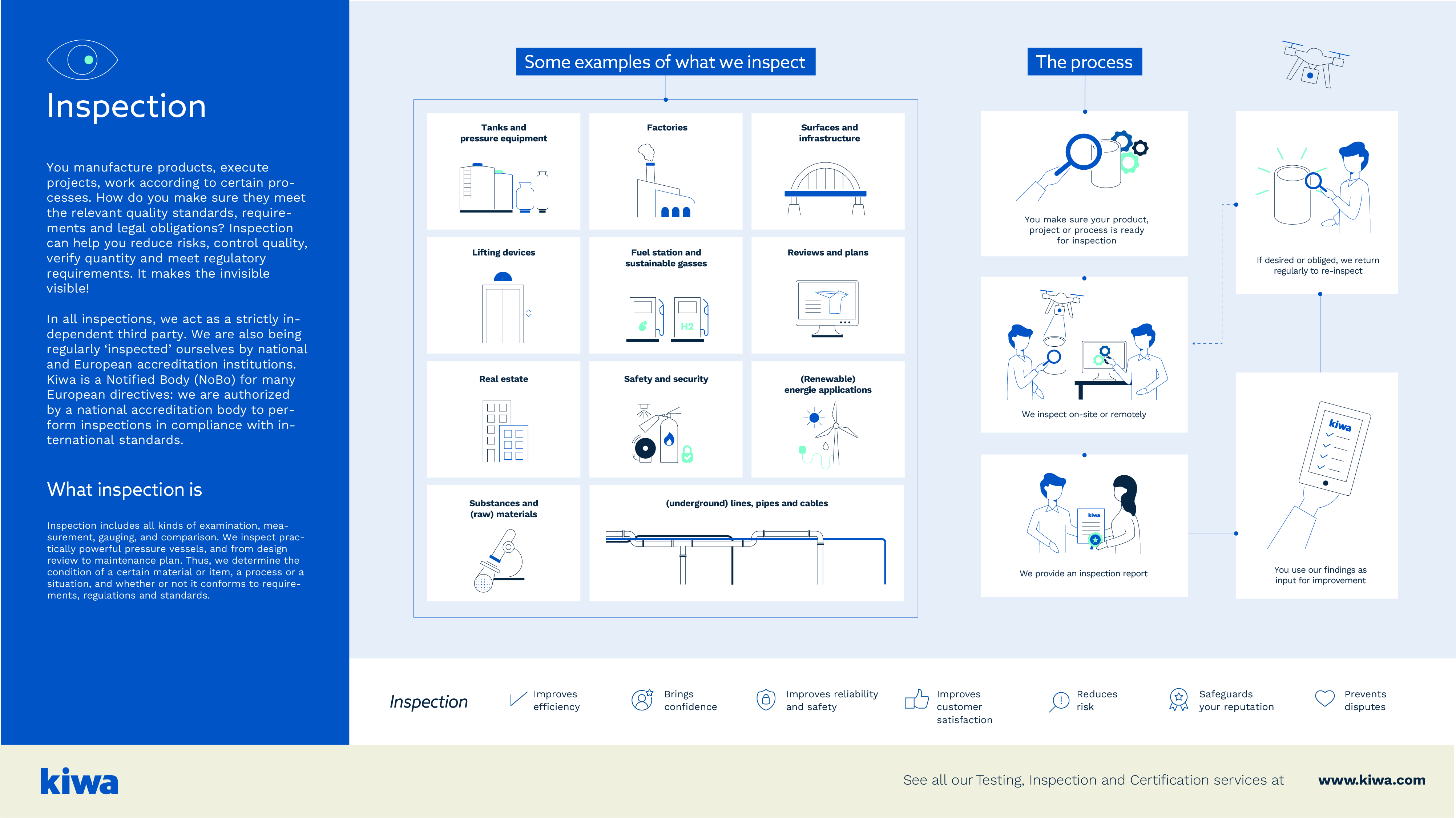Here are some reasons for having your products, processes, installations or a situation inspected on a regular basis.
Inspection brings confidence
Inspection covers all aspects of quality, health, safety and environmental management, as well as efficiency and (asset) integrity. Inspection minimises the risk of defective products, installation downtime and other drawbacks, shows compliance and safeguards your reputation. Thus, it brings confidence.
Inspection reduces risks
You and others must be able to rely on a product, process, installation or must feel safe in a certain environment. Having it inspected reduces risks like defects, malfunctions or accidents.
Inspection improves efficiency
Defects, malfunctions and downtime can have an adverse effect on your productivity, service towards customers and investments. As having your products, processes or installations inspected regularly helps prevent that, it will improve your efficiency.
Inspection prevents disputes
Our inspections map the integrity of your products, processes and/or installations. We inspect them for their functionality, safety and environmental aspects. We know rules and regulations and help you communicate with authorities. The results of an inspection allow you to demonstrate compliance and prevent related disputes.
Inspection improves customer satisfaction
While you improve the quality, reliability and efficiency of your goods, systems, installations or a situation and have it inspected according to rules and regulations, your customers will have a better customer journey or experience. That way, you'll improve their satisfaction in both the short and the long run.













